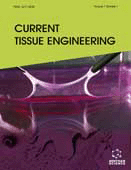Abstract
Cardiovascular diseases are one of the main causes of morbidity and mortality worldwide. Cell-based therapies represent promising treatment options. We have identified a unique cell type, cardiac-derived adherent proliferating (CardAP) cells, which can be isolated and expanded from human endomyocardial biopsies. These cells show several cardioprotective features in vitro and in vivo and present a potential cell source for cardiac repair. Initial genome-wide gene expression profiling revealed that CardAP cells express a large number of genes involved in angiogenesis. Therefore, we expected that they support this process and the aim of this work was to investigate the angiogenic features of CardAP cells.
First, we studied the direct angiogenic differentiation potential of CardAP cells in a functional in vitro Matrigel tube formation assay. Since also paracrine-mediated mechanism of angiogenesis for cell therapy in cardiac regeneration are known, we further investigated the pro-angiogenic potential of CardAP cells on human umbilical vein endothelial cells (HUVECs) by using conditioned medium (CM) in the tube formation assay. Finally, we studied the secretion of the proangiogenic factors VEGF and IL-8 during the cultivation of CardAP cells.
The investigation of the angiogenic differentiation potential in tube formation assay revealed that CardAP cells showed endothelial structures but expression of endothelial markers could not be detected. Treating HUVECs with CM resulted in a significant up to a two-fold increase in total tube length and a up to a three fold increase in the number of branching points, indicating a pro-angiogenic effect of CardAP cells. Moreover, these cells secreted a mean of 576 ± 60 pg VEGF and a maximum mean of 99 ± 30 ng IL-8 per 105 cells.
Our findings revealed that CardAP cells mediate a pro-angiogenic effect in a paracrine manner, which might bean underlying mechanism of the cardio protective features of CardAP cells.
Keywords: Angiogenesis, CAPs, CardAP, cardiac-regeneration, cardiac tissue engineering, cardiovascular regeneration, heart cell therapy, heart-regeneration.
 6
6

